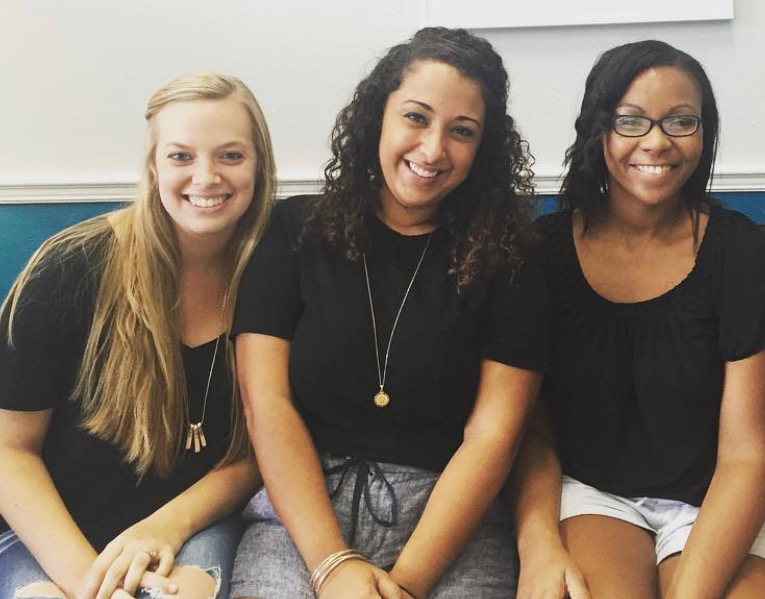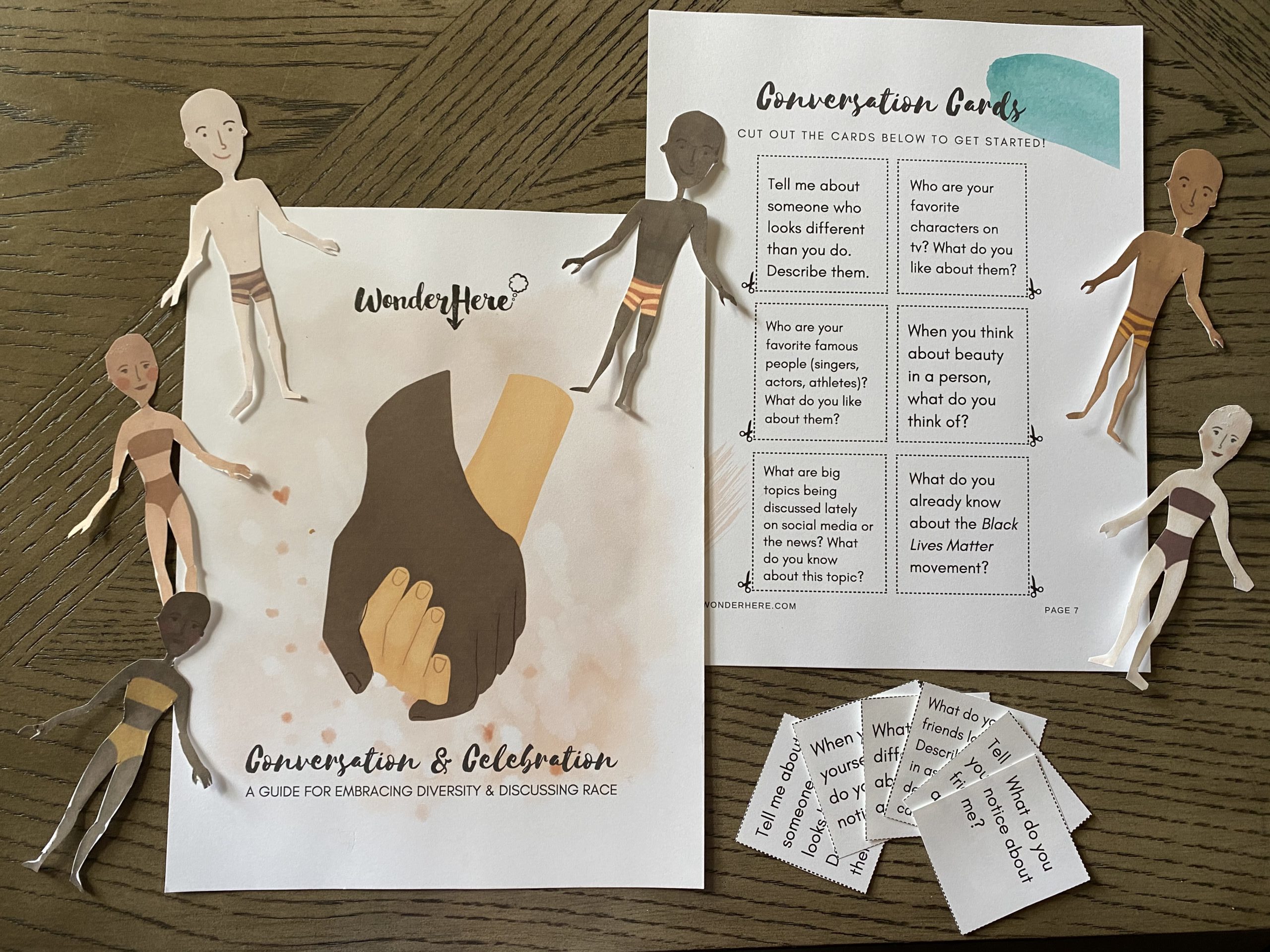As parents, we dream BIG dreams for our children. We hope that they will grow to live the fullest, biggest, most beautiful lives that they can. We pray that these bright, brave, and kind children will grow to become bright, brave, and kind adults. And we want them to arrive to adulthood with the least number of bumps and bruises as possible. These are the hopes of all mothers and fathers. Black, white, and any color in between… the heart of the loving parent beats the same within each chest.
With the news amplifying the cries of the black community, parents outside of the black community across the nation are finally asking HOW can they engage in this important conversation with their children intentionally? How do we educate our children in a way that disrupts systemic racism and turns the heart of a generation towards embracing one another?
We march, we protest, we petition, and we rally as an effective way to upset norms, overturn unjust policy, and ignite a movement that incites change. We do these things publicly for all to see and we invite the community to unite together in these actions. The change that can follow movements like this can happen in leaps and roars. As a community, this is how we bring about change.
As parents, our movement happens differently. Change tends to happen slowly, overtime, and quietly… away from the public eye. The initiatives of a thoughtful and intentional parent against racism and for equality – a parent attempting to raise children that are kind and believe in justice – are the kind of masterful initiatives that change the world for good. Change that is sustainable. Change that spreads from person to person, heart to heart, moving an entire generation forward… up and out of the hatred, prejudices, and bigotry that our country has been stuck in for centuries.
This idea of kindness encompasses awareness (facts about the injustices in our world), empathy (thinking about how others are feeling), consideration (putting other’s needs before your own), and generosity (giving of our time and resources to help others).
Here’s the thing… the goal of an education isn’t just to learn reading and math. Our children must learn what they ought to love (justice, mercy, empathy) and what they ought to hate (racism, injustice, cruelty). Education gives children access to our great and diverse world. Access to this world is a great responsibility, one that requires careful communication and conversation as we, their educators, guide them.
This grand responsibility to educate our children rightly can be overwhelming. But If you know us, you know we are all about placing practical tools in the hands of parents and educators. We encourage you to use this brief checklist when considering the materials, curricula, and lessons you will use to teach your children:
Literature
- Is the literature diverse in both authors and characters?
- Does the literature present different viewpoints?
- Is your library comprised of living books (be on the lookout for a blog post about living books coming soon!)
- Does the literature bring about deep questions and discussion?
History
- What historical points of view are being shared?
- What biases and inaccurate information are you paying attention to?
- Do children have access to multiple sources of historical accounts in order to compare and think critically?
- Are you shying away from hot historical topics with younger children? If so, why?
- When teaching geography, is your child learning more than just the locations of countries and cities? Is there cultural studies in your geography learning?
- Is your child aware of current events?
Play
- Does your child have access to racially diverse dolls?
- Is there representation among the toys your child plays with?
Music & Language
- Does your child have the opportunity to listen to culturally diverse (age appropriate) music?
- Whether they are formally learning it or not, is your child exposed to other languages?
What else can you do?
Talk. Have hard conversations. With kids, with friends, with family. Call crap out. Don’t be silent.
Identify. Notice your biases.
Educate Yourself. Learn alongside your children and talk out your new learning with them and in front of them. Make challenging your normal ideas and stretching our mind something your family actively does. Teach your children that learning occurs in adulthood as much as it does in childhood. And that “school” (wherever that is for you) happens anywhere. Learning is life.
Integrate. Join diverse groups. Don’t sit in circles with people largely the same as you. That does nothing for your mindset or your kids. Mix your groups and play circles. Mix your author choices and the heroes in your kid’s stories and playthings. (Check out our Kid’s Booklist and diverse Paper Dolls included in our FREE Conversations & Celebrations guide linked below!) Don’t allow your child’s play culture to further perpetuate the idea that your child is the center of all things and that people that look like them are always on top.
Listen. Podcasts. Coffee conversations. Black musicians.
These types of ideas are essential elements of our WonderHere philosophy. We infuse empathy and kindness and diverse into all that we do. It is embedded into our curriculum, evident in the books that we select and the activities our students do, and defines the discussion our children actively engage in.
With this in mind, we wanted to give you all our FREE Conversation & Celebration: a Guide for Embracing Diversity & Discussing Race. This guide includes:
- family-friendly Conversations Cards
- an Empathy Experience
- ideas for involving your Mini (toddler age children)
- Literature lists for both kids and adults
- Music and Podcast recommendations
- Invitations to Play & Create
- a Family Pledge
- and our beautifully hand-drawn diverse Paper Dolls from our Liberty & Justice for All Unit (being released July 2020)
So, where are we in all of this? The bottom line is racism and injustices occur, are prevalent, and need to end. Our children are the right step towards a brighter, kinder future. We have the great responsibility to educate them, by loving people and hating oppression. Let’s do the work and help change come. It starts at home!
With these common hopes and dreams billowing deep within us parents, how do we prepare the way for our kiddos? One step forward at a time. One child at a time. Together.




